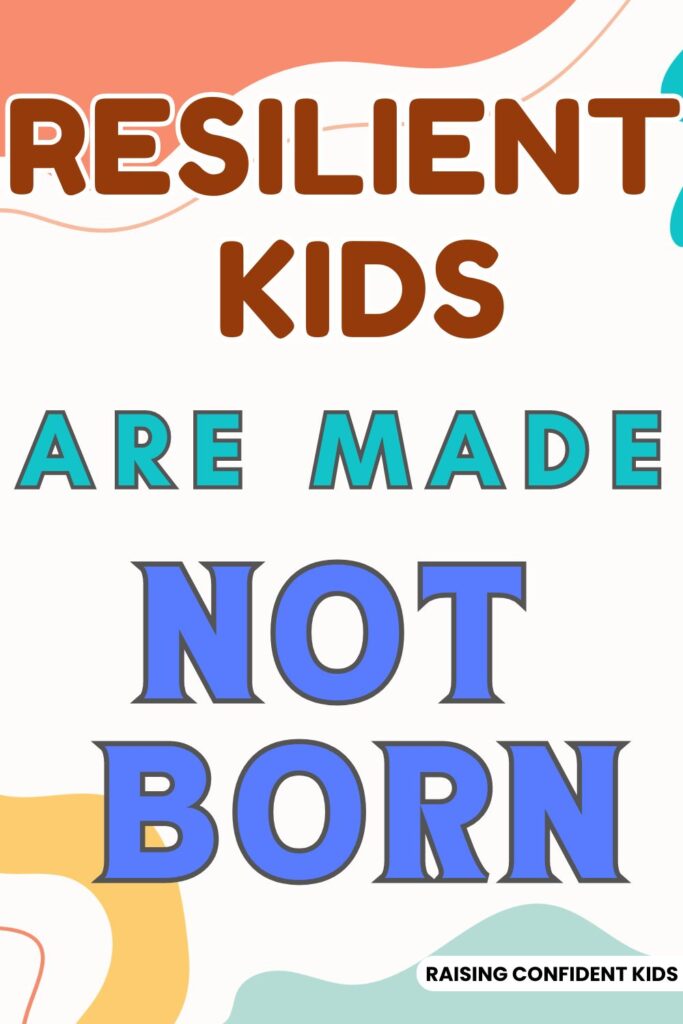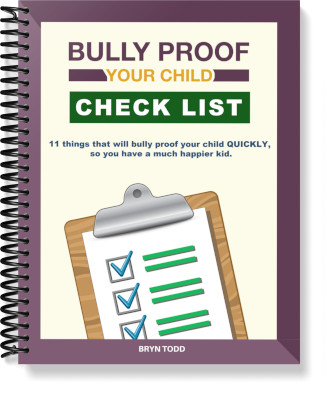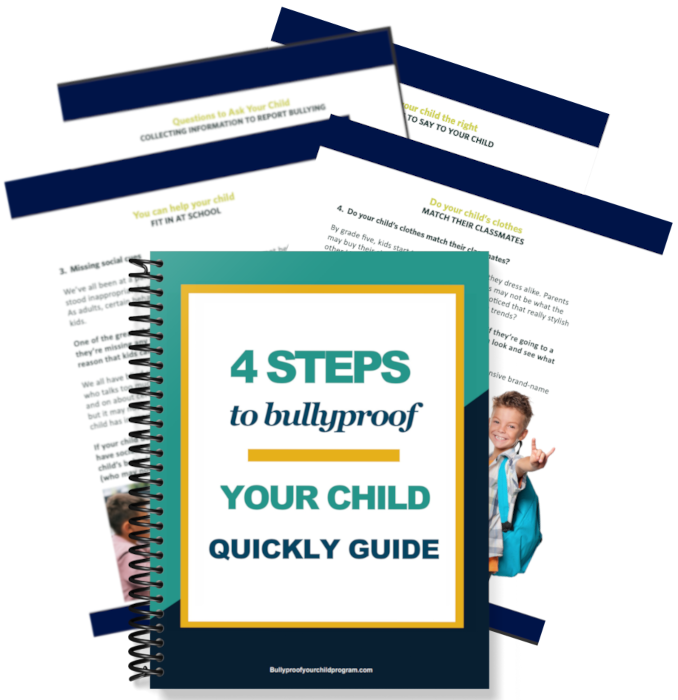
Mental strength—isn’t that what we all want for our kids? It’s not about being tough. It’s about helping them handle life’s ups and downs and knowing it’s okay to ask for help.
As parents, you’re not just fixing their problems. You’re like coaches, cheering them on and showing them how to be strong.
This blog is about how you can help your child become mentally strong. It’s not just about being strong when things are hard; it’s about learning from those hard times and growing stronger.
Why does this matter? Because being mentally strong helps kids handle stress better, bounce back from tough times, and believe in themselves.
And for you, parents, it means less worry, a stronger bond with your child, and the joy of watching them succeed.
Understanding Mental Strength
Mental strength—it’s something we all wish we could give our kids in a heartbeat. It’s that inner power that helps them face life’s ups and downs without falling apart.
It’s not just about being tough; it’s about being resilient, adaptable, and, most importantly, knowing they’re not alone.
You see, as a parent, you play a huge role in this. Think of yourself as a coach, someone who’s there to guide and support, not just to fix everything for them.
Think of mental strength as a muscle. Just like how lifting weights builds physical strength, facing life’s challenges head-on builds mental strength.
But it’s not just about facing hardships; it’s also about learning from them and growing stronger each time.
You might be wondering, “How can I help my kid be mentally strong?” Well, it’s a mix of things, really. It’s about guiding them, supporting them, and giving them the tools they need to face life’s ups and downs.
As a parent, it’s key to know this three-part approach to fostering mental strength in your children:
Control Emotions
It’s important to guide your child in learning how to manage their emotions. Encourage them to understand and identify what they’re feeling, and show them how to handle these emotions in a positive way.
Help them find healthy outlets for expression, like talking or creative activities, instead of keeping their feelings locked inside.
This teaches them not just to recognize their emotions, but also to express them constructively without letting these emotions overwhelm them.
Build Resilience
Resilience, my dear, is about teaching your child that it’s okay to stumble and fall because that’s where the real learning begins.

Show them that failure isn’t something to fear, but an opportunity to grow stronger. Let them know that every misstep is a chance to learn something new, to gain a fresh perspective.
Encourage your child to embrace new challenges, step out, and try, even if there’s a chance they might not succeed right away.
Remind them, “It’s alright if you don’t get it on the first try. What’s important is that you gave it your best shot.” This teaches them that the act of trying itself is a victory.
Foster a Growth Mindset
It’s so important to help your child understand that their abilities can grow with effort and time. Show them that it’s alright to face struggles; it’s part of learning and growing.
Encourage your child to see challenges not as barriers, but as chances to improve and learn. Guide them to focus more on their effort and the journey, not just winning or being perfect.
By supporting your child in developing this kind of mindset, you’re not just helping them for now, but you’re also preparing them for the future.
They’ll learn to approach life with the courage to face challenges, the resilience to bounce back from setbacks, and the drive to reach their dreams.
Remember, every step they take in learning to persevere and embrace growth is a step towards building a stronger, more capable version of themselves.

Importance of Raising Mentally Strong Kids
One of the most essential gifts you can give your child is the gift of mental strength. It’s not just about making sure they’re happy right now. It’s about preparing them for life, for all its twists and turns.
Here’s why raising mentally strong kids matters so much, for them and for you:
Benefits for the Child
- Better Emotional Control: Imagine your child navigating life’s ups and downs with a steady hand on their emotions. Mentally strong kids can do just that. They’re better at handling stress and less likely to be swayed by fear or anxiety. This strength shields them from common mental health challenges like anxiety or depression.
- Improved Resilience: Think of resilience like a muscle – the stronger it is, the quicker your child can recover from life’s setbacks. Mentally strong kids learn to see mistakes not as failures, but as stepping stones. They don’t crumble under pressure; instead, they rise, learn, and grow stronger with each challenge.
- Higher Self-Esteem: Mentally strong kids hold a bright and positive image of themselves. They’re the kids who’ll raise their hands to try new things, the ones who chase their dreams with confidence. Their self-belief is their secret weapon, driving them towards success and fulfillment.
Benefits for the Parents
- Less Stress: There’s a sense of deep relief when you know your child can confidently handle the twists and turns of life. Knowing that they possess the mental strength to face challenges eases your worries. You find peace in the fact that they have the tools to manage stress and overcome obstacles.
- Improved Relationship: Fostering mental strength in your child often leads to a stronger, more positive bond between you. It’s built on mutual trust and respect. Your child knows they can turn to you for advice, and feel heard, and supported. This creates a deeper, more meaningful connection, where both of you feel valued and understood.
- Pride and Satisfaction: There’s an indescribable joy and pride in seeing your child navigate life with resilience and confidence. Knowing you’ve played a pivotal role in nurturing their mental strength is incredibly rewarding. Watching them succeed, overcome hurdles, and grow into well-rounded individuals is one of the most gratifying experiences as a parent. It’s the kind of pride that fills your heart and reminds you of the profound impact you have on shaping their future.
In nurturing a mentally strong child, you’re not only shaping their future but also enriching your parenting experience. It’s a journey that brings its own rewards, transforming both your child’s life and yours.
Characteristics of Mentally Strong Kids
Mentally strong kids often stand out, radiating a certain kind of inner strength that sets them apart. They navigate life’s ups and downs with a grace and resilience that’s truly admirable.
Here are some traits that you commonly see in these remarkable young individuals:
1. Positive mindset
Mentally strong kids carry a light within them, a positive spirit that shines even on cloudy days. They see the silver linings, treasure the good moments, and don’t let negative thoughts cloud their sunshine.

They’re the ones who, when faced with problems, light up with ideas and solutions, always ready to turn a challenge into a chance.
2. Emotional intelligence
These kids walk with a deep understanding of their own hearts. They’re in tune with their feelings, navigating their emotions with a maturity that’s beyond their years.
And their empathy—it’s like a warm hug; they just get how others feel and offer their kindness and understanding, making those around them feel seen and valued.
3. Resilience
Life’s setbacks are just stepping stones for these young souls. They’re like tiny warriors, ready to get back up each time they fall.
Their journey is dotted with lessons learned from each stumble, each hurdle. They don’t wear defeat; instead, they wear their perseverance like a crown, always moving forward, eyes set on their dreams.
4. Self-discipline
In a world of instant everything, these kids are the ones who know the art of waiting, of holding back for something better.
They’re the ones who can steer away from distractions, keeping their eyes on the prize. Their self-discipline is their secret weapon, helping them build healthy habits and make choices that nourish their minds and bodies.
5. Confidence
In these kids, confidence doesn’t just whisper; it roars. They believe in themselves, their skills, their worth. Fear isn’t in their vocabulary when it comes to trying new things or stepping into the unknown.
They’re not swayed by what others think; their self-belief is their compass, guiding them to be true to who they are.
In these kids, you see not just what they are, but what they can become. As you nurture these traits, you’re helping them paint a bright and bold future, where they step into the world not just ready but eager to make their mark.
They’re not just kids; they’re the future, strong and shining.
Parenting Techniques for Mental Strength
As a parent, it’s like you’re the coach of a special team—your child. Your goal? To help them build mental strength, to be strong in their hearts and minds.
Here’s how you can help them:
Promoting Resilience
Resilience is like a muscle that gets stronger every time your child faces a challenge and learns to overcome it.
Here’s how you can nurture this essential trait in your child:
- Challenge Acceptance: Encourage your child to step out of their comfort zone. It’s okay if they stumble; what matters is they try. Say, “Give it a go, I’m right here with you,” to instill a sense of courage.
- Problem-Solving Skills: Help them become little problem-solvers. When they hit a bump, instead of solving it for them, guide them. Ask, “What do you think we can do about this?” It’s about teaching them to fish, not just giving them the fish.
- Celebrate Effort: Focus on the journey, not just the destination. When they put in the effort, acknowledge it. Say, “I saw how hard you worked on that,” to let them know that their dedication matters more than the outcome.
- Be Their Role Model: Show them how you handle your own challenges. Share your struggles and how you stay positive. Let them see your resilience in action. When you face a problem, say, “This is tough, but we can get through it,” to demonstrate optimism and persistence.
Encouraging Emotional Intelligence
Emotional intelligence is like a superpower for navigating life’s emotional waves. It’s about understanding and managing not just their feelings but also those of others.
Here’s how you can help your child develop this incredible skill:
- Recognizing Feelings: Help your child give names to their feelings. When they’re upset, ask gently, “Are you feeling sad or frustrated?” This helps them understand what they’re experiencing inside.
- Healthy Expression: Encourage them to express their emotions in creative ways. Say, “Why don’t you draw how you feel?” or “Let’s write a story about what happened.” It’s about giving their feelings a safe outlet.
- Lead by Example: Show them how you handle your emotions. When you’re feeling a certain way, share it with them and explain how you deal with it. For instance, “I’m a bit stressed, so I’m going to take deep breaths.”
- Empathy and Understanding: Foster empathy by asking them to think about how others feel. “How do you think your friend felt when that happened?” This encourages them to step into someone else’s shoes and see the world from a different perspective.
Teaching Problem-Solving Skills
When life throws puzzles and problems at your child, having strong problem-solving skills is like giving them a key to unlock solutions.

Here’s how you can guide them to become adept problem-solvers:
- Breaking Down Big Problems: When your child faces a big challenge, encourage them to see it as a series of smaller tasks. You might say, “Let’s tackle this bit by bit. What’s the first small step we can take?”
- Thinking of Options: Nurture their creativity by brainstorming different ways to solve a problem. Ask them, “What are all the ways we could solve this?” It’s like opening a box full of possibilities and exploring each one.
- Weighing Pros and Cons: Guide them to think critically about each solution. Discuss together the advantages and disadvantages of each idea. You could ask, “What do you think would happen if we tried this way?”
- Celebrating Effort: Remember, it’s not just about getting the right answer. Praise their thinking process and effort. Say, “I’m really proud of how you thought through that problem.”
Teach your child to stand up for themselves
When it comes to helping your child navigate the world, teaching them to stand up for themselves is like giving them a shield and sword for life’s battles.
Here’s how you can guide them in this important skill:
- Asserting Boundaries: Gently encourage your child to recognize and express their limits. You might say, “It’s okay to tell someone when you’re not comfortable with something. Saying ‘no’ is important.”
- Communicating Assertively: Show them how to express their thoughts and feelings clearly yet kindly. Practice with them, saying things like, “I feel upset when you do that. Please stop.”
- Resolving Conflicts: Help them navigate tricky situations by thinking through solutions. Ask them, “What do you think is a fair way to solve this problem?”
- Leading by Example: Let them see you standing up for yourself in everyday life. Whether it’s at the store or with friends, show them how you maintain your dignity while being respectful to others.
Teach appropriate boundaries
Boundaries are like invisible lines that help us feel safe and respected. It’s so important for your child to understand and use them.
Here’s how you can guide them:
- Identify Their Own Boundaries: Sit down with your child and chat about what makes them comfortable or uncomfortable. Encourage them to recognize their feelings and express them. You could say, “It’s okay to tell someone if you don’t like something.”
- Respect Others’ Boundaries: Explain that just like they have their own boundaries, others have theirs too. Encourage them to be mindful and respectful of how others feel. “Remember, if your friend says they don’t want to play a certain game, it’s important to listen.”
- Setting Examples: Let them see you setting and respecting boundaries in your own life. Whether it’s saying no to extra work or asking for personal space, show them how it’s done.
- Seeking Help: Teach them it’s okay to ask for help. Say, “If you ever feel like someone isn’t respecting your boundaries, it’s really brave to talk to me, a teacher, or another adult you trust.”

These little lessons are big steps in helping your child grow into someone who knows their worth and respects others.
You’re equipping them with the skills to navigate life’s interactions confidently and healthily. And as they grow, they’ll know not just how to draw their own lines but also to honor those of others.
Common Mistakes to Avoid
When you’re trying to help your kid become mentally strong, it’s easy to slip into habits that might actually hold them back. You love them and want the best for them, but sometimes, without realizing it, you might be doing things that aren’t helping.
Here’s what to watch out for:
Overprotection
I know, as a parent, your instinct is to keep your child safe from all harm. But, sometimes, holding on too tightly can do more harm than good.
It’s tough to see, but overprotecting them can stop them from learning essential life skills. They might end up scared to take even the smallest step without you.
Instead of wrapping them in cotton wool, let them stumble a little. It’s okay if they scrape their knees or feel disappointed.
These experiences, though hard to watch, are what teach them to stand up on their own. It’s how they learn resilience, and how to face challenges head-on.
Let them try things out, even if you’re worried they might fail. Encourage them to explore, to be curious, to take those little leaps. It’s in these moments they discover their strength and build their confidence.
Remember, your role is to guide them, not shield them from every bump along the way. It’s a delicate balance, I know.
But by giving them the space to experience life, with all its ups and downs, you’re helping them grow into capable, brave individuals. Your love and support are their safety net, giving them the courage to spread their wings.
Avoiding Difficult Conversations
Talking about things like death, divorce, or bullying with your kid can feel really tough. It’s easier to just not talk about these things, right? But if we don’t talk about these things with them, they might feel like they can’t talk to you when they’re upset.
Let’s try to make it easier to talk about these tough things. Maybe sit with them in a place they love, with some snacks, and start chatting. Say something like, “It’s okay to talk about hard things with me. I’m here to listen and help.”
Listen a lot when they talk. Look at them and show you understand. Let them know it’s okay to feel sad, mad, or mixed up. Being open and kind shows them it’s good to talk about hard stuff and ask for help.
Remember, talking about these things helps them trust us more. It shows them they’re not alone. And it teaches them how to talk about tough stuff as they grow up.
Neglecting Self-Care
As a parent, your kid always comes first. But sometimes, you might forget to look after yourself. Ignoring your own self-care can leave you worn out and stressed, and that’s tough for both you and your child.
So, let’s try something different. Think about your own health too. Find a little time for yourself to exercise, dive into your hobbies, or just hang out with friends. It’s not being selfish; it’s recharging your batteries.
When you’re feeling good and energized, you’re in a better place to care for your kiddo. Plus, you’re showing them how important it is to take care of yourself.
Remember, by looking after yourself, you’re not just helping you – you’re setting a great example for your child. They’ll learn from you how to balance taking care of themselves and tackling life’s challenges.
Let Your Child Experience Failure
You know, it’s really tough to watch your kid struggle or fail. But believe me, those bumps in the road? They’re important. They teach your kid how to get back up again.

Here are some tips to help your child learn from failure:
- Encourage your child to try new things: It’s okay if they’re a bit scared. New things can be tricky, but they’re great for learning. Cheer on your child to give different activities a go. It doesn’t matter if they don’t get it right straight away.
- Help your child set realistic goals: Big dreams are awesome, but sometimes they need small steps. Work with your child to set goals that are just right – not too easy, but not impossible either.
- Teach your child to learn from mistakes: When things don’t go as planned, don’t focus on what went wrong. Instead, ask them, “What can we learn from this?” Help them see every mistake as a chance to get better.
- Avoid overprotecting your child: I know it’s hard, but try not to jump in and fix everything. Let them face some challenges. It teaches them to stand on their own feet. Just be there with a helping hand and a listening ear when they need you.
Remember, every time they stumble and get back up, they’re growing a little bit stronger, a little bit braver. Your support and belief in them? That’s what will help them turn every ‘oops’ into an ‘I can do better.’




